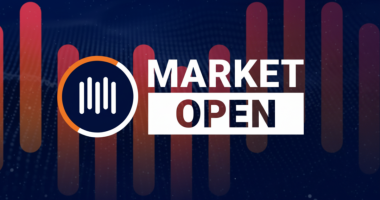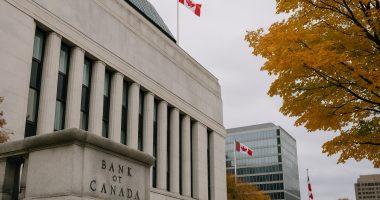Fineqia International is a Vancouver-based asset manager with a strategic focus on the decentralized and WEB 3.0 economy.
Joining us here at the Top Line today is CEO Bundeep Rangar, thanks for joining us today.
TMH: To start off with, give our viewers an overview of your company and your investment strategy that revolves around investing in blockchain-based financial solutions.
BR: There’s a lot of fascination with this new emerging economy based on digital assets. People talk about the metaverse, and people talk about Web 3.0, but there is also a lot of confusion around that, and with recent events, people have been a bit more apprehensive as to what’s really kosher and what’s not. Fineqia stands out as a kind of conduit to what’s going on there and, in some ways, a filter because we have built a team, we’ve built a network. We’ve made investments in companies that are building blocks of the next iteration of this digital economy. You can look at Fineqia as being a proxy for getting multi-asset exposure to this new digital economy of Metaverse, NFTs private companies that are building blockchain-based solutions but through a listed security that goes with all the transparency, regulation, of course, liquidity in our stock price. You’re not stuck in an illiquid investment in a private company for a long time. Fineqia really is that kind of investor-friendly proxy for this digital economy.
TMH: How does your recent round of funding help you achieve your growth plans?
BR: We have a three-prong growth strategy. So one is to continue with our investments. We’ve got some phenomenal investments. For example, we are limited partners in a fund called Ideal CoLab, which is a San Francisco-based design shop called Ideal. They designed the mouse for Steve Jobs. They designed the pump action toothpaste for Colgate, and they’ve got incubators, we’re limited partners and the funds actually in remarkably well. We’re also a big shareholder in an asset manager called Way Financial, another digital asset manager out of LA. They’re one of the top five regulated asset managers in the space. So we’re gonna continue with that prong of our strategy, which is making more such investments in private companies, either directly into companies or into these funds. With that, we get co-investment opportunities. We’ve co-invested alongside Wave and an NFT fund.
We’ve co-invested alongside Idea CoLab into a gaming platform that’s built-in blockchain technology. Our second prong is to look at the space of exchange-traded funds, which people are very familiar with in Canada. Our theatre of operation is more Europe, and in Europe, they tended to take the form of exchange-traded notes. You’ll have seen our research. We put that out every single month, and at the end of last year, we did a year-end summary where we noticed that the total number of ETPs, which was a sum total of exchange-traded funds and exchange-traded notes, actually grew by 50% worldwide in this space. Even though the overall markets declined, the number of such products increased by 50%. That increase from 109 to 152 basically shows that there’s an appetite amongst investors. There are a lot of investors who are looking at this from the long-term perspective.
We want to be there, and the third thing we’re looking at is innovation in this space of ETPs but also in NFTs. So we all know about NFTs. They got a lot of hype and a lot of attention. Whether it was CryptoKitties early on or the Bored Apes, we’re not quite sure, I guess the beauty is in the eyes of the beholder and maybe the value friend of Jesus, the eyes to the beholder. Still, we do know one thing that’s growing is music, and Goldman Sachs, for example, predicts that revenue from music worldwide will double by 2030 compared to what it was in 2017 because you and I both listen to music. We have this proliferation of devices that are connected, and that’s not just in the West but worldwide. So with that increase of revenue for music, we think there’s gonna be a really interesting play for music NFTs whereby you can create fractional ownership of a music track or a music album, distribute that to different people who then not only get kind of bragging rights if the song’s a big hit, but they also get a continuous royalty revenue from sales of those tracks.
That I think is quite cool, and it’s of course digital ’cause it’s music, as you know, these days is bind reads, and it’s no longer vinyl. So we’re looking at those three things, looking at private company investments similar to what we did before. Looking at the merging innovation that’s gonna occur in the ETF/ETN space and then, of course, the NFTs but with a particular focus on music.
TMH: What is your message to potential investors who maybe aren’t as knowledgeable about the crypto or the digital world in general?
BR: Anybody who is connected to a phone these days knows how the digital world is. We sign things electronically, we transfer money and funds electronically, and people are used to this virtual economy, in particular with kids in the next generation of sort of millennials plus. So what we’re seeing is the acceptance of virtual assets is no longer a question. Kids don’t even question the fact that they never touch money. It’s sitting somewhere digitally that they now want to own assets that they no longer want to touch and feel. They’re just used to this being on a screen. If you’re a gamer, you have been used to that for the past 30 years. So gaming’s always been digital, and there’s been fantasy-filled swords or guns you can buy or cars you can drive if you are in that digital world. So we think this advent of a digital economy is just the next iteration, and it’s no wonder that companies like Facebook have renamed themselves meta because that’s just part of that metaverse play that’s gonna pan out over the next five to 10 years. I couldn’t tell you exactly how it’s gonna pan out, but I can tell you it is gonna pan.
TMH: Talk to us about the team and expertise in the sector.
BR: We are kind of the intersection of this digital economy and capital markets because, again, being a listed company, we want to make sure that scene is a safe route into this emerging digital asset economy. So our chairman, for example, is a former director of the London Stock Exchange. He used to have the alternative investment market there for about seven years. Our head of strategy is a former London Stock Exchange person as well. Our chairman, Martin Graham, and our head of strategies, Michael Coletta, who also came from there, look at again, digital asset strategy investments on behalf of London’s stock exchange. We actually met over a deal because Fineqia had invested in a deal that also was invested by the London Stock Exchange Group. Our head of distribution sales, Nirosh, is also ex-London Stock Exchange. So again, brings the combination of real-world finance, capital markets and this new world. We recently hired a head of operations who comes from the ETF world and has worked with ETFs Marc is a French national who lives in London and, again, combining that listed world of exchange-traded funds or, in our case, exchange-traded notes with digital assets and the capital markets and it’s that kind of unique combination of skillsets and experience, I think gives us all the advantage we need for this year.
TMH: Tell us more about the investment strategy that revolves around investing in the new digital asset economy.
BR: We are in a unique position where we’ve seen what happened with the early entrance. If you remember from the .com days, there were a lot of early participants. Anytime there’s a new paradigm shift in the economy or technology, you have this initial euphoria, almost like to quote Alan Greenspan, a bit of a rational exuberance towards this new thing that’s out there and in that, you see either sort of questionable business models because they’re just a bit too maverick or for that matter, questionable actors and participants and when you have both and that’s the worst of both worlds, and you get dubious characters with questionable business models and we’ve now kind of arguably seen the worst of that with the FTX sort of explosion last year and the various other entities that have kind of fallen out as a consequence we to have had our Lehman moment, I think in the kind of digital crypto world, things happen in a year that normally would take place in 10 years.
We’ve kind of accelerated the 1929 crash, and we’ve gone to the.com bubble within the space of the last 14-15 years that has been, that’s been the crypto iteration because you remember the Bitcoin white paper only came out like what, 15 years ago. So we are accelerating that whole process of maturity, and now is the time to look at the mistakes of those who didn’t do things well and learn from the successes of those who did things well and then innovate upon that we are the fast follower learning both the mistakes and the success stories to now create what will become the next iteration of the digital economy and that’s what we kind of waited, built our network. Now I think is the right time because the valuations for companies are a hell of a lot more attractive than they were a year ago, and the people who are actually starting companies and building are a lot more serious. Their integrity is far more there, and investors are far more scrupulous of what they go behind. They’re not just going because of fear of missing out or the FOMO factor but really because they want to be part of a great return on this new economy that’s being built digitally.
TMH: Any milestones our viewers can look out for in the coming months?
BR: I obviously will be guarded to say what we’ll be doing, but I would say that based on what I just mentioned as that three-prong strategy, we will be doing things that are gonna be innovative. I think we will be continuing with our private investments that are in companies that are solid that have got great people behind them. Most of all, we will look at innovation in the exchange-traded product space, which is exchange-traded notes in our case, because there’s definitely room for innovation there. Not just capital appreciation of digital assets but interesting ways that companies are playing in this decentralized finance world. So the defi participation of ETFs is something that’s gonna be quite cool to look out for, and we’re actively examining that space, and I think we’ll do something quite cool and meaningful in the music NFT space. So I would say watch the space, there is more coming, and these things will unfold, and that’s the reason why we managed to get higher than an anticipated private placement. We targeted 4 million. We had such great interest, and we increased that to five, and we closed pretty close to 5 million when we closed our private placement in December.
Thanks for joining us at The Market Herald today and sharing your insights with our Top Line audience and your investors.
We’ve been speaking with Fineqia CEO Bundeep Rangar. The company trades on the Canadian Securities Exchange under the ticker symbol FNQ. You can visit them at fineqia.com for more information.
Thanks for watching Top Line. In Vancouver, I’m Sabrina Cuthbert. We’ll see you next time.
FULL DISCLOSURE: This is a paid article produced by The Market Herald.



